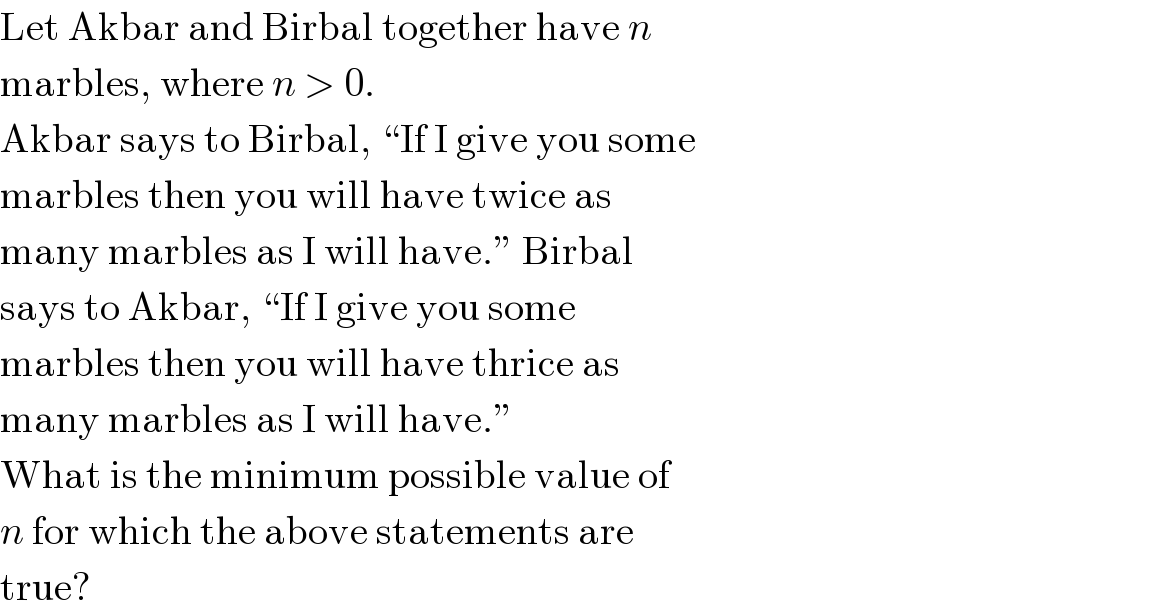
Question and Answers Forum
Question Number 19516 by Tinkutara last updated on 12/Aug/17

Answered by dioph last updated on 12/Aug/17

Commented byTinkutara last updated on 12/Aug/17

| ||
Question and Answers Forum | ||
Question Number 19516 by Tinkutara last updated on 12/Aug/17 | ||
 | ||
Answered by dioph last updated on 12/Aug/17 | ||
 | ||
| ||
Commented byTinkutara last updated on 12/Aug/17 | ||
 | ||